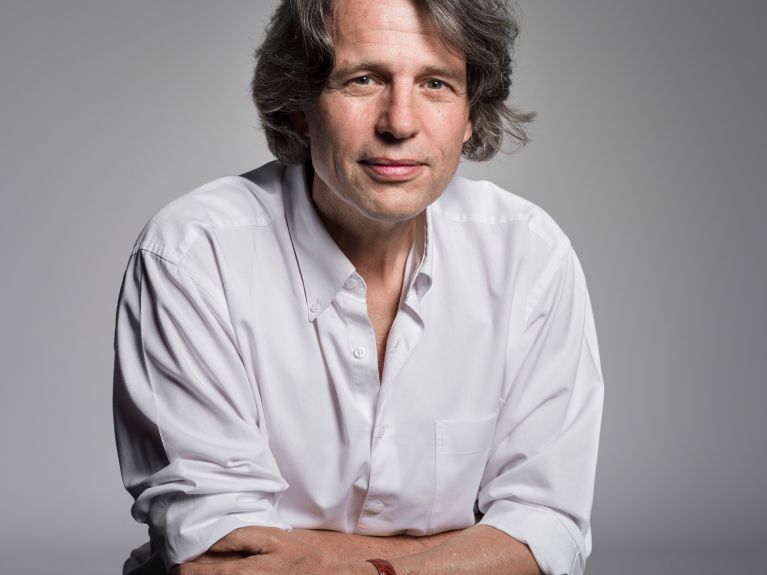Article 2: Personal freedoms
Philosopher Albert Kitzler: The framework for finding your own centre.

With respect to Article 2 of the Basic Law, I think of two sentences that were of existential importance to my life. One of them says that Goethe's indefatigable creative drive was deeply seated in his personality in an ever-ongoing, inward and outward, urge to learn. Education was for him an extension of his knowledge and at the same time a shaping of his own personality. In it his existence was consummated. I have associated ever since with this idea that of a fulfilled and happy existence. It became the maxim of my life.
Everyone has the right to the free development of his personality, so far as he does not violate the rights of others.
The second sentence points in the same direction and comes from the Greek poet Pindar, who wrote 2,500 years ago: "Become who you are, based on experience". He links the idea of education with the unique personality of each person and points out that education can be consummated only in constant interaction with practical activity and the experiences thereby gained. Only in this way can we come to ourselves, into our centre, into the security within ourselves.
To fulfil Pindar's dictum, I have taken a long way with several turns, twists, and apparent detours. An end to this path is not in sight, and it seems that this open, curious and growing progress, in which I continually experience myself and the world, is the true destiny of human being.
The state should open as many fields of personal development as possible to as many people as possible.
What makes this progress possible is the fundamental right to "free development of the personality". "Free" means that each individual should be the helmsman of his inner and outer life and determine himself where his journey goes. The task of the state is to create the best possible conditions and economic and social foundations to achieve this. It should open as many fields of personal development as possible to as many people as possible, so that they can implement their potential and thus find their happiness. Here the state runs up against de facto and economic limits.
No freedom is absolute and boundless. Within these limits, however, everyone can bring his personality to bloom and so become who he is. He can do this of course only where the state grants him a fundamental right to self-responsible personal development, as does Article 2 (1) of the German Basic Law.
"If a man is in possession of himself and cannot spread out – that is distress." Zhuangzi (circa 365-290 BC, Chinese philosopher)
Basic Law of the Federal Republic of Germany, Article 2
(1) Every person shall have the right to free development of his personality insofar as he does not violate the rights of others or offend against the constitutional order or the moral law.
(2) Every person shall have the right to life and physical integrity. Freedom of the person shall be inviolable. These rights may be interfered with only pursuant to a law.
You would like to receive regular information about Germany? Subscribe here:

